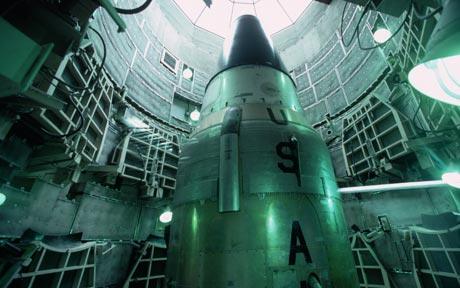
From Des Browne, Wolfgang Ischinger, Igor Ivanov, and Sam Nunn, International Herald Tribune: [T]oday’s leaders should move decisively and permanently toward a new security strategy, one that considers offensive and defensive military forces, nuclear and conventional weapons, and cybersecurity and space. Thinking together about these issues in an integrated way can lead to transformational change in Euro-Atlantic security and nuclear and conventional force postures — from the persistent Cold War shadow of mutually assured destruction to mutual security. This focused and sustained effort can increase stability, reduce the risk of conflict, eliminate remaining bilateral and regional disputes, and save precious resources. . . .
The key to this strategy is a new continuing process of dialogue involving senior civilian and military leaders mandated by the highest political levels, where security could be discussed comprehensively and practical steps could be taken on a broad range of issues. . . .
Reducing the role of nuclear weapons as an essential part of any nation’s overall security posture — without jeopardizing the security of any of the parties — should be among the core principles guiding this new dialogue. This should include practical steps to increase decision time and crisis stability for leaders, in particular with respect to U.S. and Russian strategic nuclear forces. Even under the latest nuclear arms treaty, each country will maintain thousands of nuclear warheads on hundreds of ballistic missiles ready for prompt launch and capable of hitting their targets in less than 30 minutes. This status increases the risk that a decision to use ballistic missiles will be made in haste based on false warning, as well as the risk of an accidental or unauthorized missile launch.
What are the costs of persistent inaction in defining a fresh approach to mutual security? While there is much more at stake here than “guns versus butter,” in the area of nuclear weapons alone, the potential price tag is breathtaking. The United States is poised to embark on programs to build new nuclear-armed ballistic missile submarines and strategic bombers at a cost of more than $400 billion, and to extend the life of nuclear weapons deployed in Europe at a cost of $10 billion. Russia reportedly plans to spend 1.9 trillion rubles, or $61 billion, over the next decade to modernize its strategic nuclear forces, while the United Kingdom estimates the cost of Trident replacement at £25 billion, or $38 billion. A new approach to security would not save every one of these dollars, rubles, pounds, or euros from being spent, but over time the savings could be substantial — and they could multiply in the non-nuclear areas of security policy.
A new approach for building mutual security in the Euro-Atlantic region can lead to a more secure and promising future for all our citizens. There is an historic — and fleeting — opportunity to act. There is no more important security issue for leaders to address.
Des Browne, former British defense secretary, is convener of the European Leadership Network. Wolfgang Ischinger, former German deputy foreign minister, is chairman of the Munich Security Conference. Igor Ivanov, former Russian foreign minister, is president of the Russian International Affairs Council. Sam Nunn, former U.S. senator, is co-chairman of the Nuclear Threat Initiative. They are co-chairmen of the “Building Mutual Security in the Euro-Atlantic Region” initiative. (photo: CORBIS)
Image: corbis%204%202%2013%20silo.jpg
